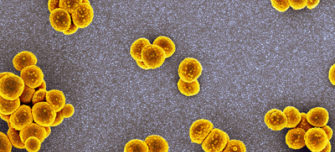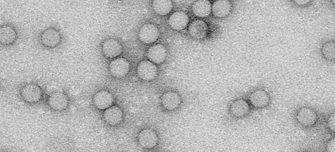Bacteria in industry

Often, the first thing that comes to mind when we think about microbes in the built environment are damage, decay, discolouration and staining to building materials and their surfaces. What we don’t consider is their ability to act as bioengineers. Apart from the production of important compounds, bacteria are also useful in the breakdown of environmental contaminants such as pesticides, petroleum additives and plasticisers. The successful use of bacteria on an industrial scale has prompted expansion into more diverse areas. A recent addition to the résumé of these tiny organisms is the utilisation of biomineralizing bacteria in self-healing construction materials.
It is becoming the norm to exploit bacteria in industrial processes for their ability to act as ‘cell factories’ that can produce important speciality products such as detergents, plastics, fuels and essential oils.
How can bacteria impact industry?
Bacteria can have a huge impact on industry and national and financial interests. The usefulness of microbial biomineralization in construction materials has been established in principle in the laboratory and in several field trials. However, several challenges still have to be overcome. For example, methods for optimising the survival of the bacteria within concrete are currently being developed.
In geotechnical applications, bacteria are now being used as part of the engineering toolbox for the consolidation and stabilisation of soils to counteract erosion, enhance bearing capacity, and enable excavation and tunnelling. This is due to the intrinsic ability of a wide range of bacteria to promote the precipitation of mineral carbonate, such as calcium carbonate, as a by-product of their metabolism.
Read more about how and why the use of bacteria in industry matters to our members and the wider microbiology community, access our additional resources and find out a bit more about the next field of microbiology that matters to our community, as we explore 'Vaccines: the global challenge for microbiology.'
-
Microbiologists working in this area
To celebrate our 75th anniversary in 2020, we invited microbiologists to nominate the discovery or event that best showcases why microbiology matters and helps us demonstrate the impact of microbiologists past, present and future. Learn more about microbiologists working to understand bacteria in industry.
-
Resources and further reading
Discover how and why bacteria are being exploited in industrial processes, the biotechnological applications scientists are using to make use of bacteria and how research has led some microbiologists to use antimicrobial stewardship ward rounds in hospitals to improve patient care.
-
Vaccines: the global challenge for microbiology
Vaccines are made from microbes that are dead or inactive so that they are unable to cause disease. Not only do vaccines protect individuals, they can also provide herd immunity. We will explore four key areas of vaccination, including how vaccines work, are produced, more about herd immunity and eradicating disease.
Image credits:
Gram stain reagents. Dr Stephen GarrettScience Photo Library
Nicola Stonehouse and Oluwapelumi Adeyemi





